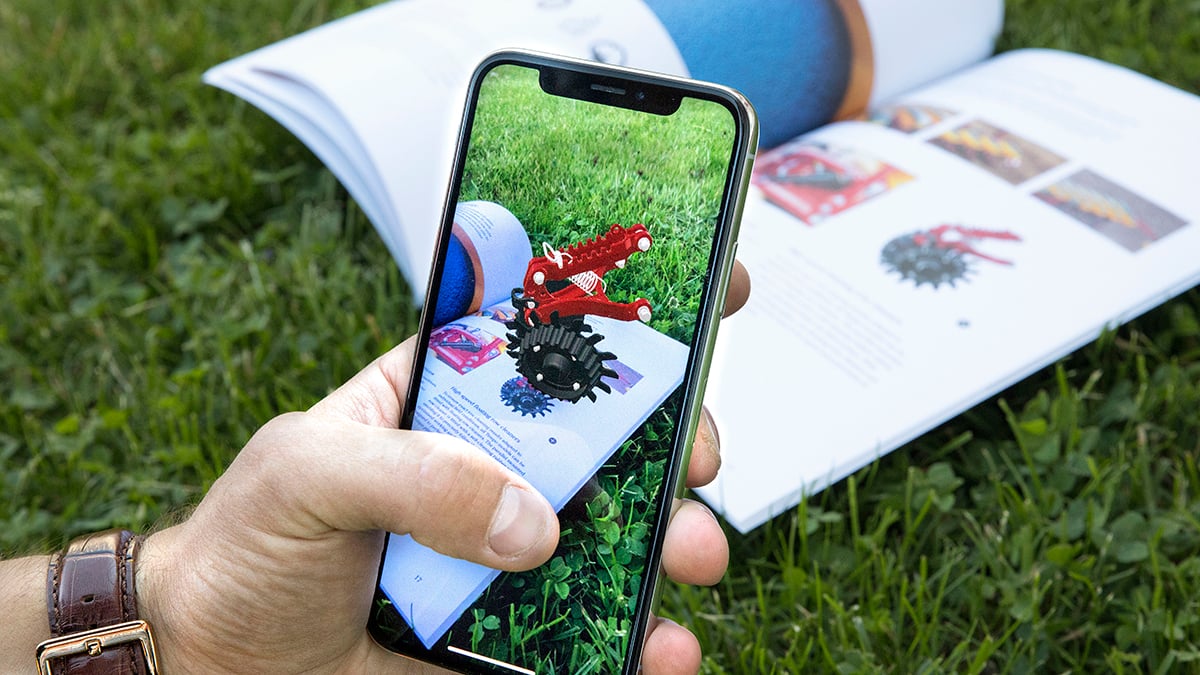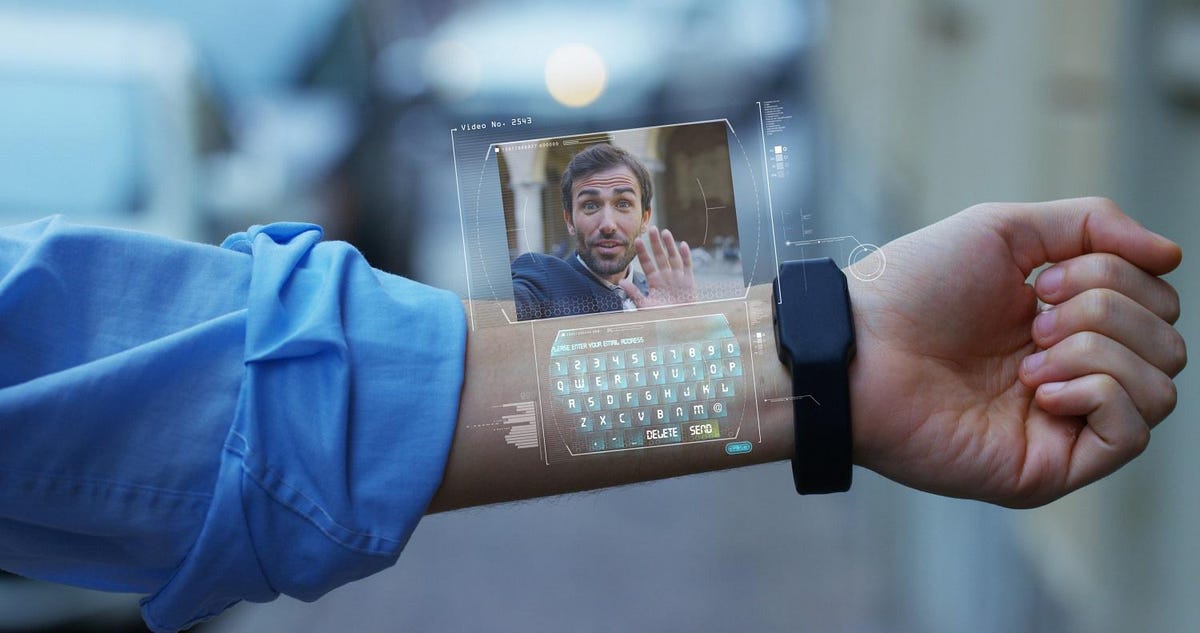Quantum Computing: Quantum computing is a new technology that has the potential to revolutionize computing. Unlike classical computers, which use bits to store and process information, quantum computers use qubits, which can represent multiple states simultaneously.
Augmented Reality: Augmented reality (AR) is a technology that overlays digital information onto the physical world. While AR is already being used in a number of applications, such as gaming and education, it is likely to become more widespread in the future.
5G Technology: 5G is the next generation of mobile networking technology. It promises faster download and upload speeds, lower latency, and the ability to connect more devices simultaneously.
Artificial Intelligence: Artificial intelligence (AI) is already transforming many industries, from healthcare to finance to transportation.
Wearable Technology: Wearable technology, such as smartwatches and fitness trackers, has already become popular. In the future, we could see the development of new types of wearable technology, such as smart clothing and implantable devices, that could monitor our health and provide us with real-time information about our bodies.
Quantum Computing

Quantum computing is a field of computing that uses quantum-mechanical phenomena, such as superposition and entanglement, to perform operations on data. Unlike classical computers that operate on binary digits (bits) that can only be in one of two states (0 or 1), quantum computers use quantum bits (qubits) that can be in multiple states simultaneously, allowing for a more efficient way of solving certain problems.
Quantum computers have the potential to revolutionize many fields, including cryptography, chemistry, and machine learning. They are particularly well-suited to solving problems that are too complex for classical computers to solve efficiently, such as factoring large numbers, simulating quantum systems, and optimizing complex systems.
There are currently several types of quantum computers being developed, including superconducting qubits, ion trap qubits, and topological qubits. However, quantum computing is still in its early stages, and it is uncertain when we will see practical applications of this technology.
Quantum Computers
In the book “Physics of the Impossible” (2008), Michio Kaku writes that quantum computers exist even now, it is not difficult to build them. The problem is in the physical features of quanta. The fact is that the whole essence of computing in a computer comes down to bandwidth. The binary code “0” and “1” is an open or closed “door” for the path, while moving along the algorithm.
Quantum mechanics is about probabilities.
The position of the quantum that is used for a kind of “0” or “1” is not 100% known, but only 80% – 90%. This means that the computer will make mistakes while solving the algorithm every 5-10 times. And given that there is far from the only “door” in the algorithm, such a computer will always calculate for you, for example, 4+2=7.
You can learn more about quantum computing in these books:
Quantum Computing for Everyone
Dancing with Qubits: How quantum computing works and how it can change the world
Laptops Amazon
We have an excellent roundup of the best budget laptops. Where you can find out the pros and cons of each laptop.
Augmented Reality

Augmented Reality (AR) is a technology that superimposes computer-generated images, sounds, or other sensory elements onto the real world in real-time. It allows users to experience a digital layer that enhances their perception of the physical world.
AR can be experienced through a variety of devices such as smartphones, tablets, smart glasses, or head-mounted displays. The technology uses cameras, sensors, and software to track the user’s environment and overlay digital information onto it. The information can be in the form of text, images, videos, or 3D models.
AR has many potential applications in fields such as entertainment, education, healthcare, and retail. For example, it can be used to create immersive gaming experiences, provide interactive learning tools, help doctors visualize medical images, and offer customers a virtual try-on experience for products.
AR technology is constantly evolving, and as devices become more powerful and affordable, the potential for its widespread use is increasing. The future of AR is likely to involve more advanced and intuitive interfaces, more realistic and sophisticated digital objects, and more seamless integration with our physical surroundings.
5G Technology

5G technology is the fifth generation of wireless network technology. It is the next evolution of mobile networks, offering higher speeds, lower latency, and increased capacity compared to its predecessors. 5G is designed to provide faster and more reliable communication services to support the growing demand for data and connected devices.
5G uses a combination of different technologies such as millimeter wave, sub-6 GHz, and Massive MIMO (multiple input multiple output) to deliver faster data speeds and lower latency. It can support download speeds of up to 20 Gbps, which is significantly faster than 4G networks.
5G technology has the potential to revolutionize many industries, including healthcare, manufacturing, transportation, and entertainment. For example, it can enable remote surgeries and telemedicine, improve autonomous vehicle safety, increase efficiency in factories, and provide faster and more immersive entertainment experiences.
However, the implementation of 5G technology also faces some challenges, such as the need for significant infrastructure investment, the limited coverage in some areas, and concerns about potential health and environmental effects of the higher frequency radio waves used in 5G networks.
Despite these challenges, 5G technology is rapidly expanding, and its impact on society is expected to be significant.
Smartphones Amazon
By the way, we have an excellent review of the TOP smartphones with the best camera – rating.
Artificial Intelligence

Artificial Intelligence (AI) refers to the development of computer systems that can perform tasks that typically require human intelligence, such as perception, reasoning, learning, problem-solving, decision making, and natural language processing. AI is a broad field that encompasses various subfields such as machine learning, deep learning, natural language processing, computer vision, robotics, and more.
AI systems are designed to learn from data and improve their performance over time through experience. They can be used in a variety of applications, including image recognition, speech recognition, language translation, predictive analytics, autonomous vehicles, virtual assistants, and many others. AI has the potential to transform various industries and improve the way we live and work. However, there are also concerns about the ethical implications of AI and its impact on employment and society as a whole.
Wearable Technology

Wearable technology refers to electronic devices that are worn on the body or integrated into clothing or accessories. These devices typically include sensors, processors, and wireless communication capabilities, and can track a variety of health and fitness metrics, monitor environmental conditions, and provide notifications and alerts.
Examples of wearable technology include smartwatches, fitness trackers, smart glasses, smart clothing, and implantable devices. Wearable technology is becoming increasingly popular, particularly in the health and fitness industry, where it is used to monitor vital signs, track physical activity, and provide real-time feedback to users.
Wearable technology is also being used in other industries, such as manufacturing and logistics, to improve worker safety and efficiency, and in the military to enhance situational awareness and decision-making capabilities. However, there are also concerns about the privacy and security implications of wearable technology, particularly with regards to the collection and use of personal data.

